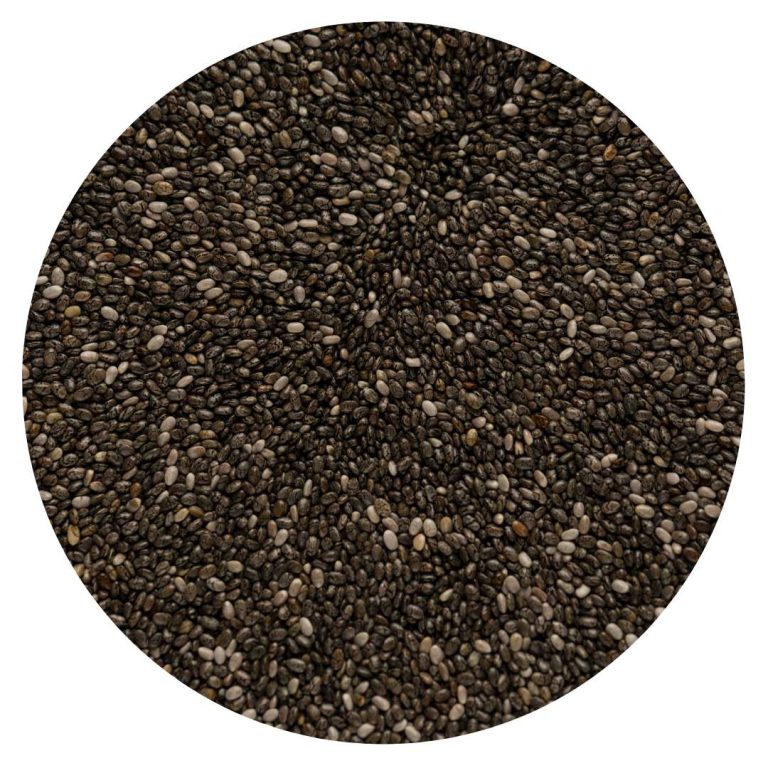Should you Take Omega-3 Supplements?
Omega-3 (ω-3) supplements have been touted as important for everyone and essential for vegans. Does a supplement deliver on the reported benefits or is it a waste of money or even counterproductive? Isit necessary to get the right omega-6 (ω-6) to ω-3 balance? Read on to find out if you should be taking an ω-3 supplement.
What is ω-3
ω-3s are essential polyunsaturated fatty acids because they are not produced within the body and must be obtained from diet. ω-3 fats include alpha linolenic acid (ALA), eicosapentaenoic acid (EPA), and docosahexaenoic acid (DHA).
EPA and DHA are primarily found in cold water fish and algae. ALA is primarily found in plants. ALA can be converted to EPA and DHA in small quantities. However, ALA containing foods are highly beneficial all on their own (9,2,1).
ω-3 Sources
Oily Fish and other seafood: salmon, halibut, tuna, trout, herring, oysters, mussels, and sardines
Nuts and seeds: flaxseed, chia seeds, hemp seeds, and walnuts
Plant oils: flaxseed oil, walnut oil, soybean oil, and canola oil
Vegetables: spinach, kale, soybeans, purslane, broccoli, and brussels sprouts
Fortified foods (check packaging): eggs, yogurt, juices, milk, soy beverages
Supplements: fish oil, krill oil, cod liver oil, and algal oil
What is ω-6
ω-6s are also essential polyunsaturated fatty acids that must be obtained diet. ω-6s include linoleic acid (LA), conjugated linoleic acid (CLA), arachidonic acid (ARA), and gamma linoleic acid (GLA).
LA is found in primary in plant foods and meats and eggs, CLA in meat and dairy, ARA in meat, and GLA in primrose, borage, and black currant seed oils.
ω-6 Sources
Baked goods: cookies, cakes, crackers
Meats: chicken wings, cured meats, hot dogs, and other meats (grain fed fatty meat especially)
Nuts and seeds: sunflower seeds, walnuts, peanuts, pine nuts pecans, cashews, and pumpkin seeds
Plant oils: soybean, corn, sunflower, peanut oil, sesame seed oil, primrose, borage, and black currant seed
Other: Fast food, fried foods
Benefits of ω-3 and ω-6
You may have heard that ω-3 is “good” and ω-6 is “bad” but the truth is neither is entirely good or bad. Any nutrient can become ‘bad’ or problematic when we get too much or too little. Both ω-3 and ω-6 are beneficial and serve important metabolic functions.
Benefits of balanced ω-3 include good mood (11,8), heart health (9,10,1), better cognitive function (6,5,3,4,7), healthy weight (17), healthy skin (16), and balanced blood sugar (15).
Benefits of balanced ω-6 include a lower the risk of CVD, CVD mortality, and ischemic stroke (12). Additionally, the ω-6 in primrose oil, borage oil, and black currant seed oil are converted to gamma-linolenic acid (GLA) that reduces inflammation (14). GLA may have similar benefits to ω-3 (14).

Balancing ω-3 and ω-6
A more equal balance of ω-6 to ω-3 ratio is ideal. Too much ω-6 reduces ω-3 leading to inflammation that contributes to health problems like depression (18), arthritis (17), and heart disease (16). Alternatively, too much ω-3 will also lead to an imbalance and have negative effects like low blood pressure. More is not better when balance is the key to a nutrient’s health benefits.
Too much ω-6 is more common because the typical western diet has a high ω-6 to ω-3 ratio. A recent Singaporean study cohort was found to have a similar fatty acid profile to overweight North American study groups (14). Singaporeans are increasingly eating a more energy dense diet that includes more fast foods and eating out (14).
Fast food, fried food, and processed foods (snack foods, baked products, fatty cured meat, mayonnaise /dressings) often contain vegetable oils that contribute to a high ω-6 to ω-3 ratio. However, there is no need to reduce healthy ω-6 foods like sunflower seeds, peanuts, and pumpkin seeds that contain many beneficial nutrients like vitamin E. Put your effort into eating whole plant foods like walnuts, flaxseeds, and lots of green vegetables and reduce processed and deep-fried foods.
Don’t stress about balancing fatty acids or avoiding certain foods! Supplements are certainly not essential for omnivores or whole food plant-based vegans. ω-3 supplements are most beneficial when levels low like in an unhealthy diet high. There are negative side effects from excessive ω-6 or ω-3. Remember that balance is key and remember to take a quality supplement if your diet could use some health improvements.
How to Get Enough ALA Omega-3
The recommended amount of omega-3 for women is 1.1g and men 1.6g as ALA (19). It can add up fast when you eat healthy. Recommendations have not been established for EPA or DHA.

Chia seeds, 1 ounce, 28g, 1 serving = 5g

Walnuts, 1 ounce, 28g, 1 serving= 2.6g

Brussel Sprouts, ½ cup cooked, 1 serving, 78g= 0.38g

Edamame ½ cup, 1 serving, 80g= 0.28g

Flaxseed whole 1 ounce, 28g, 1 serving = 2.35g




